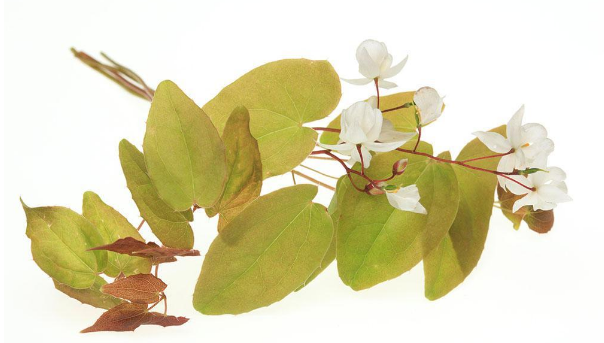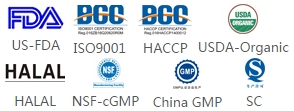Icariin Articular cartilage has poor capability for repair following trauma or degenerative pathology due to avascular property, low cell density and migratory ability. Discovery of novel therapeutic approaches for articular cartilage repair remains a significant clinical need. Hypoxia is a hallmark for cartilage development and pathology. Hypoxia inducible factor-1alpha (HIF-1α) has been identified as a key mediator for chondrocytes to response to fluctuations of oxygen availability during cartilage development or repair. This suggests that HIF-1α may serve as a target for modulating chondrocyte functions.

In this study, using phenotypic cellular screen assays, we identify that Icariin, an active flavonoid component from Herba Epimedii, activates HIF-1α expression in chondrocytes. We performed systemic in vitro and in vivo analysis to determine the roles of regulation of chondrogenesis. Our results show that Icariin significantly increases hypoxia responsive element luciferase reporter activity, which is accompanied by increased accumulation and nuclear translocation of HIF-1α in murine chondrocytes. The phenotype is associated with inhibiting PHD activity through interaction between Icariin and iron ions. The upregulation of HIF-1α mRNA levels in chondrocytes persists during chondrogenic differentiation for 7 and 14 days. Icariin (10−6 M) increases the proliferation of chondrocytes or chondroprogenitors examined by MTT, BrdU incorporation or colony formation assays. enhances chondrogenic marker expression in a micromass culture including Sox9, collagen type 2 (Col2α1) and aggrecan as determined by real-time PCR and promotes extracellular matrix (ECM) synthesis indicated by Alcian blue staining. ELISA assays show dramatically increased production of aggrecan and hydroxyproline in Icariin-treated cultures at day 14 of chondrogenic differentiation as compared with the controls. Meanwhile, the expression of chondrocyte catabolic marker genes including Mmp2,Mmp9, Mmp13, Adamts4 and Adamts5 was downregulated following Icariin treatment for 14 days. In a differentiation assay using bone marrow mesenchymal stem cells (MSCs) carrying HIF-1α floxed allele, the promotive effect of Icariin on chondrogenic differentiation is largely decreased following Cre recombinase-mediated deletion of HIF-1α in MSCs as indicated by Alcian blue staining for proteoglycan synthesis. In an alginate hydrogel 3D culture system, Icariin increases Safranin O positive (SO+) cartilage area.
This phenotype is accompanied by upregulation of HIF-1α, increased proliferating cell nuclear antigen positive (PCNA+) cell numbers, SOX9+ chondrogenic cell numbers, and Col2 expression in the newly formed cartilage. Coincide with the micromass culture, treatment upregulates mRNA levels of Sox9, Col2α1, aggrecan and Col10α1 in the 3D cultures. We then generated alginate hydrogel 3D complexes incorporated with Icariin. The 3D complexes were transplanted in a mouse osteochondral defect model. ICRS II histological scoring at 6 and 12 weeks post-transplantation shows that 3D complexes incorporated with Icariin significantly enhance articular cartilage repair with higher scores particularly in selected parameters including SO+ cartilage area, subchondral bone and overall assessment than that of the controls. The results suggest that Icariin may inhibit PHD activity likely through competition for cellular iron ions and therefore it may serve as an HIF-1α activator to promote articular cartilage repair through regulating chondrocyte proliferation, differentiation and integration with subchondral bone formation.More information, please check here







